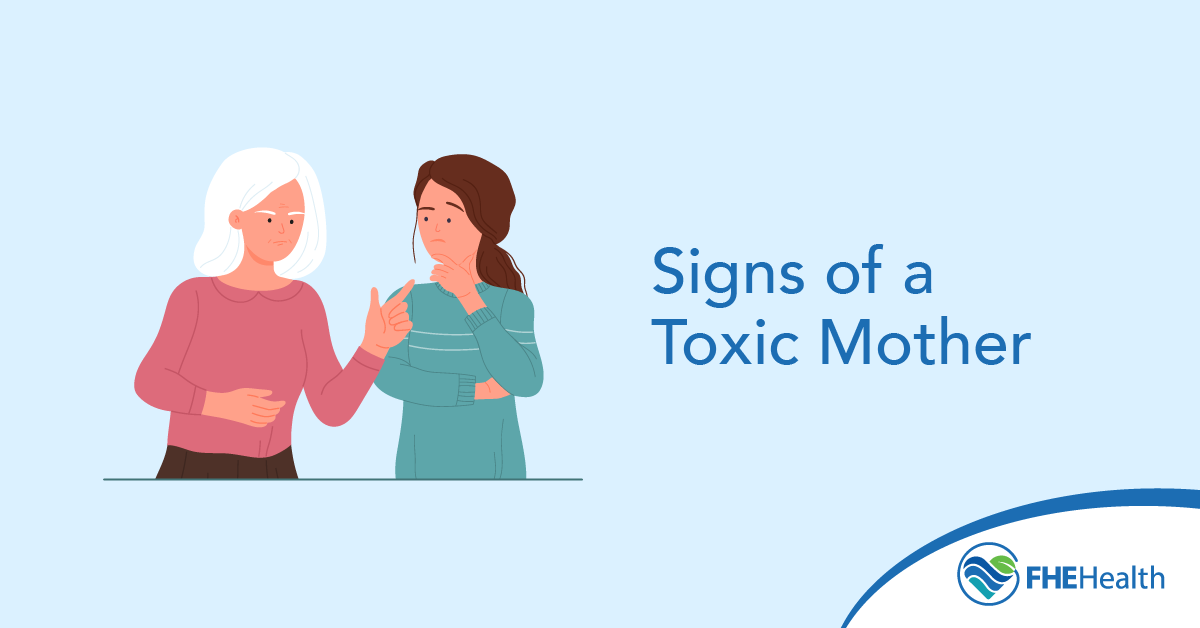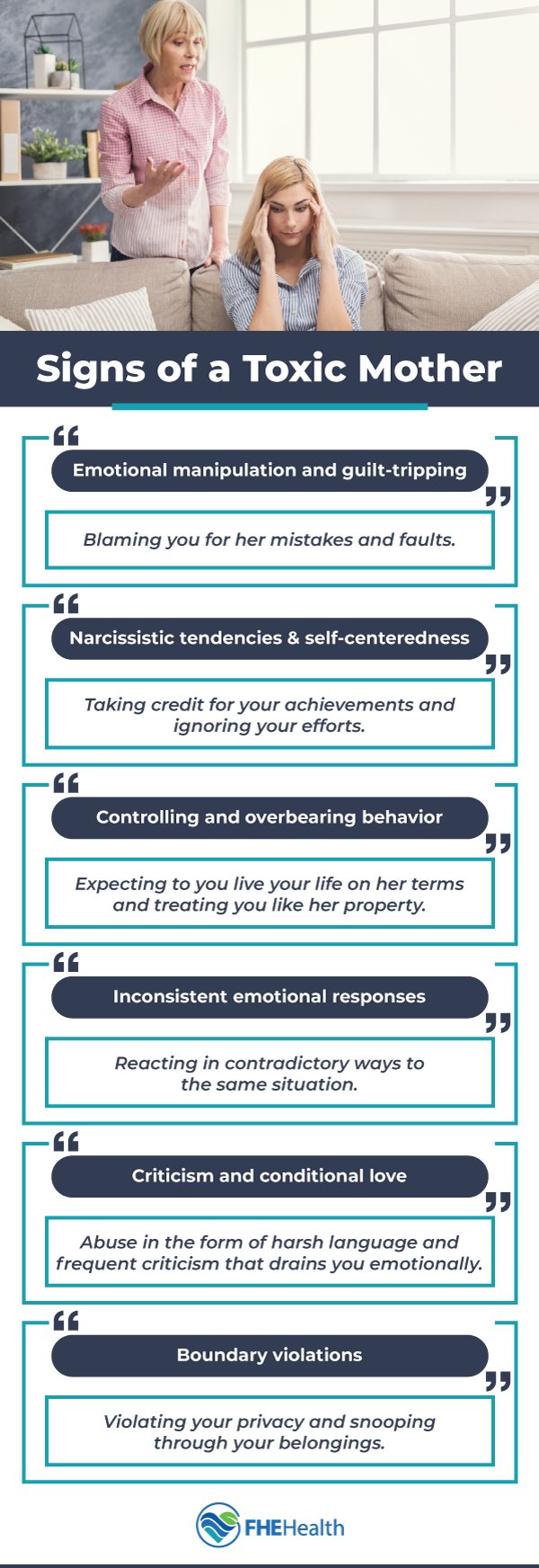
Growing up with a toxic mother can leave emotional wounds that extend far into adulthood. The mother-child relationship forms the foundation of how we view ourselves and interact with the world, making it particularly devastating when it becomes a source of pain rather than nurture. While all parents make mistakes, a toxic mother exhibits consistent patterns of harmful behavior that damage her child’s emotional well-being and development. Understanding these patterns is the first step toward healing and breaking the cycle of dysfunction.
Understanding Toxic Parental Behavior
The 2021 census by the U.S. Department of Health & Human Services’ Children’s Bureau reported that roughly 8 in 1,000 children suffered some form of maltreatment. In almost 79% of cases, the child’s parents were the source. Toxic parental behavior goes beyond occasional mistakes or moments of frustration that all parents experience. It involves consistent patterns of emotional manipulation, control and disregard for a child’s emotional needs. A toxic parent creates an environment where the child’s role becomes meeting the parent’s emotional needs, rather than receiving the care and support necessary for healthy development.
This dysfunction often stems from the parents’ own unresolved trauma, mental health issues or personality disorders. However, understanding the root cause doesn’t excuse the behavior or minimize its impact on the child. Toxic parents often lack the emotional intelligence or willingness to recognize how their actions affect their children. They may justify their behavior as discipline, protection or love, making it difficult for children to understand that what they’re experiencing isn’t normal or healthy.

Common Traits and Patterns of a Toxic Mother
Recognizing the specific behaviors characteristic of a toxic mother can help you validate your experiences and understand the impact they’ve had on your life. These patterns often overlap and reinforce each other, creating a complex web of dysfunction that can be difficult to navigate as a child. Common traits of toxic mothers include:
- Emotional manipulation and guilt-tripping
- Narcissistic tendencies and self-centeredness
- Controlling and overbearing behavior
- Inconsistent emotional responses
- Criticism and conditional love
- Boundary violations
Emotional and Psychological Effects on Children
The impact of growing up with a toxic mother shapes how you view yourself and interact with others. The effects can persist well into adulthood, influencing your relationships, career choices and overall mental health. Children of toxic mothers often find themselves dealing with:
- Self-esteem and self-worth issues
- Anxiety and hypervigilance
- Difficulty with trust and intimacy
- People-pleasing and codependency
- Identity confusion
How These Dynamics Influence Adult Relationships
The patterns learned in childhood with a toxic mother often repeat themselves in adult relationships. Understanding these connections can help you recognize unhealthy dynamics and make conscious choices to break the cycle.
- Romantic relationships. You might find yourself attracted to partners who mirror your mother’s traits, unconsciously recreating familiar patterns even when they’re harmful. Alternatively, you might choose partners who are emotionally unavailable or overly passive.
- Friendships and social connections. Difficulty setting boundaries learned in childhood can carry over into friendships. You might attract people who take advantage of your giving nature or struggle to maintain balanced relationships where both people’s needs are considered.
- Professional relationships. You might struggle with authority figures, have difficulty advocating for yourself or become overly invested in gaining approval from supervisors. Perfectionism and fear of criticism may limit your willingness to take risks or pursue opportunities.
- Parenting. Breaking the cycle of toxic parenting requires conscious effort and often professional support. Without intervention, you might unconsciously repeat patterns from your own childhood or swing to the opposite extreme.
Coping Strategies and Healing From Parental Toxicity
Working with a qualified therapist who understands family dysfunction and trauma can provide invaluable support in your healing journey. Therapeutic approaches such as cognitive behavioral therapy, dialectical behavior therapy or trauma-focused therapy can help you process your experiences and develop healthier coping mechanisms. Group therapy or support groups can provide validation and connection with others who share similar experiences.
Learning about toxic family dynamics, attachment styles and trauma responses can help you understand your experiences and reactions. Reading books, attending workshops or consuming educational content about these topics can provide the framework for understanding your past and making sense of your current challenges.
Many adult children of toxic mothers struggle with emotional regulation because they didn’t learn these skills in childhood. Techniques such as mindfulness, meditation, breathing exercises and grounding techniques can help you manage overwhelming emotions and develop a more stable relationship with your inner world.
Surrounding yourself with supportive, emotionally healthy people is important for healing. Learning to prioritize your own needs and set appropriate boundaries is also essential for recovery. This includes physical self-care, including proper nutrition and sleep, emotional self-care such as journaling or creative expression and relational self-care such as limiting contact with toxic individuals when necessary.
When to Set Boundaries or Limit Contact
One of the most challenging aspects of healing from a toxic mother relationship is determining how much contact to maintain. This decision is deeply personal and depends on various factors that include the severity of the toxicity, your current mental health and your mother’s willingness to acknowledge and change her behavior.
- Assessing the current relationship. Before making decisions about contact, honestly evaluate your current interactions with your mother. Consider whether these leave you feeling drained, anxious or upset.
- Setting healthy boundaries. This might include refusing to discuss certain subjects, ending conversations when they become abusive or declining invitations to events where you feel unsafe or unwelcome.
- Choosing low contact. Low contact involves maintaining minimal interaction while protecting your emotional well-being. This might mean brief, surface-level conversations during holidays or family events while avoiding deeper personal sharing.
- Considering no contact. No contact might be necessary when the relationship poses a serious threat to your mental health, safety or well-being.
- Dealing with guilt and social pressure. Society often places pressure on adult children to maintain relationships with their parents, regardless of how toxic they might be. Remember, you’re not obligated to maintain a relationship simply because of a biological connection.
- Preparing for reactions. When you begin setting boundaries or limiting contact, expect pushback from your toxic mother and potentially other family members. She might escalate her behavior, attempt to manipulate you through other family members or use guilt and shame to try to regain control.
If you’re struggling with thoughts like “My mom is toxic,” remember that acknowledging harmful behavior doesn’t make you a bad person. The decision to limit contact with a parent is never easy, but prioritizing your mental health and well-being isn’t selfish — it’s necessary for your healing and growth.
Get Professional Support at FHE Health
Healing from the complex trauma of growing up with a toxic mother requires compassionate professional support and evidence-based treatment approaches. Don’t let your past continue to control your future. Contact us today to begin your journey toward healing and emotional freedom.






